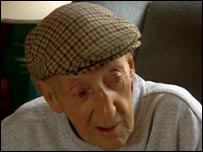Greek Royals and WWII
When Italy proclaimed war to Greece, the King didn't even know it until the morning. The Italian ambassandor went to the Prime Minister's house really early in the Morning, and gave him a telegraph which stated taht , unless Greece surrendered to Italy within 3 hours, war would be proclaimed. Prime Minister Metaxas couldn't reach the Government and the King , so he acted alone declaring that Greece would not surrender. As a result, the royal family learned about the war the next morning when sirines started because the Italian airplanes were flying over Athens.
The whole family started concentreting then to Greece. Crown Prince Paul and Frederika with Sofia and baby Constantine moved to the centre of Athens and stayed with King George and Princess Catherine( Paul and George's sister) in the King's palace. Their niece, Alexandra with their mother Aspasia Manos were living in Venice and were forced the day war was proclaimed to evacuate their home taking only a luggage each and they travelled through Yugoslavia to Athens on the train that was appointed to exchange Greeks form Italy and Italians form Greece to Yugoslavia. Princess Elena and Princess Alice also left their suburban villas and moved to the centre when the bombing began. The last ones to arrive in Athens were Prince George and his wife Marie Bonaparte from Paris and Prince Philip who came to stay with the family a few days before going to serve in the British Royal Navy.Only two members of the family didn't try to join t the rest, Prince Andrew who was living in Monte Carlo and Prince Peter (George and Marie's son ) who stayed in Paris. When bombs started falling, they had to move to Prince George's palace, bacause it was thought to be a safer building.
The day the Germans reached Lamia, the whole family left for Crete, first the women and then the men,and from then they went to Egypt and to South Africa. Paul, Frederica, the children , Marie , George and Catherine settled there and they were joined by Princess Eugenie ( George and Marie's daughter) and her family. Aspasia and Alexandra went to London and King George spent half his time in London and the other half in South Africa. Only two Greek Royals stayed in Greece: Princess Alice , who would not leave and Princess Elena who tried to go and meet her daughter Marina in London but couldn't . They moved in together at Prince George's house.
A quite funny anecdote concerning the first days of war: Mussolini had already bombed Patra , resulting to many deaths and was threatening to bomb Thesaloniki the next day . Thesaloniki didn't have many shelters and the King was over worried, organising stuff etc. Then a telephone arrived from their Embassy in Yugoslavia, and the man on the phone told to King George" Sir , I am to pass you a message from Princess Olga . She informs you that you should not worry about Thesaloniki today." " And how comes cousin Olga exactly knows it?" "Well, Sir, she told me right now to tell you that these imbeciles in the Airforce mixed the cities and bombarded Monastir instead"

It seems it
is after all useful to have relatives married into other Houses.....



 Thank you for the excellent post! I agree that Crown Princess Märtha was a real advocate for her country.
Thank you for the excellent post! I agree that Crown Princess Märtha was a real advocate for her country.